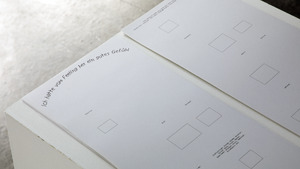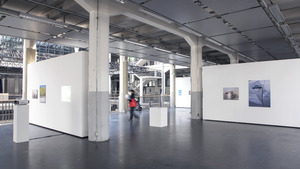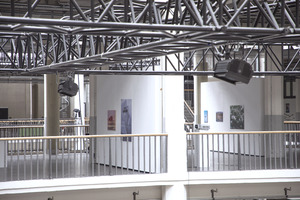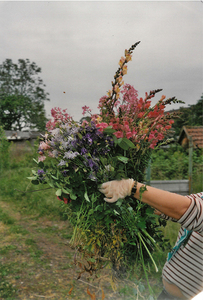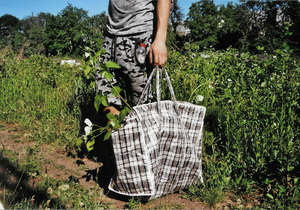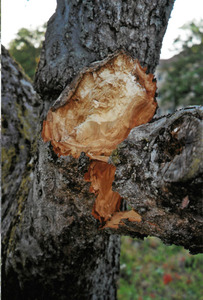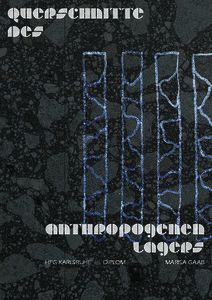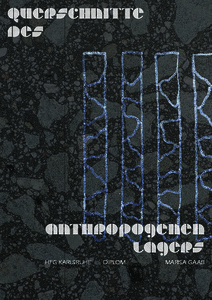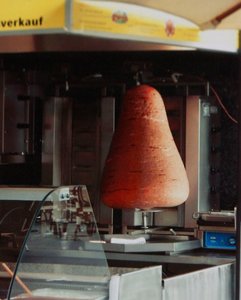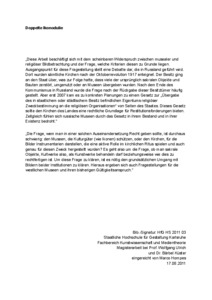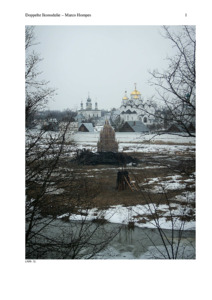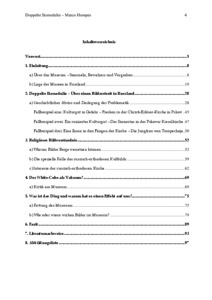HfG
Alle Inhalte mit Metadaten des Vokabulars "HfG". Sie sehen nur Inhalte, für die Sie berechtigt sind.
2717 Inhalte
- Seite 1 von 227
Dokumentation der Ausstellung
- Titel
- Dokumentation der Ausstellung
- Autor/in
- Titel
- Dokumentation der Ausstellung
- Urheberrechtshinweis
- © Alexander Theis
- Rechtsschutz/Lizenz
- Freigabe Nutzung HfG
- Medienersteller/in
- Beziehung/Funktion
- Projektleiter/in
- Semester
- Studiengang
- Typ der Abschlussarbeit
- Importiert am
- 30.07.2024
- Übergeordnete Sets
- 1
Dokumentation der Ausstellung
- Titel
- Dokumentation der Ausstellung
- Autor/in
- Titel
- Dokumentation der Ausstellung
- Urheberrechtshinweis
- © Alexander Theis
- Rechtsschutz/Lizenz
- Freigabe Nutzung HfG
- Medienersteller/in
- Beziehung/Funktion
- Projektleiter/in
- Semester
- Studiengang
- Typ der Abschlussarbeit
- Importiert am
- 30.07.2024
- Übergeordnete Sets
- 1
Dokumentation der Ausstellung
- Titel
- Dokumentation der Ausstellung
- Autor/in
- Titel
- Dokumentation der Ausstellung
- Urheberrechtshinweis
- © Alexander Theis
- Rechtsschutz/Lizenz
- Freigabe Nutzung HfG
- Medienersteller/in
- Beziehung/Funktion
- Projektleiter/in
- Semester
- Studiengang
- Typ der Abschlussarbeit
- Importiert am
- 30.07.2024
- Übergeordnete Sets
- 1
Dokumentation des Verschwindens
- Titel
- Dokumentation des Verschwindens
- Autor/in
- Kategorie
- Schlagworte
- Titel
- Dokumentation des Verschwindens
- Titel (en)
- Documentation of the disappearance
- Urheberrechtshinweis
- ©Leonie Mühlen
- Rechtsschutz/Lizenz
- Freigabe Nutzung HfG
- Medienersteller/in
- Beziehung/Funktion
- Medien-Beschreibung
- Fotografische Dokumentation des Verschwindens
67-teilige Fotoserie, Tintenstrahldruck auf Recyclingpapier, Tapetenkleister
- Fotografische Dokumentation des Verschwindens
- Medien-Beschreibung (en)
- Photographic documentation of the disappearance
67-part photo series, inkjet print on recycled paper, wallpaper paste
- Photographic documentation of the disappearance
- Projektleiter/in
- Semester
- Studiengang
- Typ der Abschlussarbeit
- Importiert am
- 17.06.2024
- Übergeordnete Sets
- 1
Dokumentation des Verschwindens
- Titel
- Dokumentation des Verschwindens
- Autor/in
- Kategorie
- Schlagworte
- Titel
- Dokumentation des Verschwindens
- Titel (en)
- Documentation of the disappearance
- Urheberrechtshinweis
- ©Leonie Mühlen
- Rechtsschutz/Lizenz
- Freigabe Nutzung HfG
- Medienersteller/in
- Beziehung/Funktion
- Medien-Beschreibung
- Fotografische Dokumentation des Verschwindens
67-teilige Fotoserie, Tintenstrahldruck auf Recyclingpapier, Tapetenkleister
- Fotografische Dokumentation des Verschwindens
- Medien-Beschreibung (en)
- Photographic documentation of the disappearance
67-part photo series, inkjet print on recycled paper, wallpaper paste
- Photographic documentation of the disappearance
- Projektleiter/in
- Semester
- Studiengang
- Typ der Abschlussarbeit
- Importiert am
- 17.06.2024
- Übergeordnete Sets
- 1
Dokumentation des Verschwindens
- Titel
- Dokumentation des Verschwindens
- Autor/in
- Kategorie
- Schlagworte
- Titel
- Dokumentation des Verschwindens
- Titel (en)
- Documentation of the disappearance
- Urheberrechtshinweis
- ©Leonie Mühlen
- Rechtsschutz/Lizenz
- Freigabe Nutzung HfG
- Medienersteller/in
- Beziehung/Funktion
- Medien-Beschreibung
- Fotografische Dokumentation des Verschwindens
67-teilige Fotoserie, Tintenstrahldruck auf Recyclingpapier, Tapetenkleister
- Fotografische Dokumentation des Verschwindens
- Medien-Beschreibung (en)
- Photographic documentation of the disappearance
67-part photo series, inkjet print on recycled paper, wallpaper paste
- Photographic documentation of the disappearance
- Projektleiter/in
- Semester
- Studiengang
- Typ der Abschlussarbeit
- Importiert am
- 17.06.2024
- Übergeordnete Sets
- 1
Dokumentation deutsch
- Titel
- Dokumentation deutsch
- Autor/in
- Kategorie
- Schlagworte
- Datierung
- 30.10.2023
- Titel
- Dokumentation deutsch
- Titel (en)
- documentation german
- Urheberrechtshinweis
- © Marisa Gaab
- Rechtsschutz/Lizenz
- Freigabe Nutzung HfG
- Medienersteller/in
- Beziehung/Funktion
- Projektleiter/in
- Semester
- Studiengang
- Typ der Abschlussarbeit
- Importiert am
- 27.05.2024
- Übergeordnete Sets
- 1
Dokumentation englisch
- Titel
- Dokumentation englisch
- Autor/in
- Kategorie
- Schlagworte
- Datierung
- 30.10.2023
- Titel
- Dokumentation englisch
- Titel (en)
- documentation englisch
- Urheberrechtshinweis
- © Marisa Gaab
- Rechtsschutz/Lizenz
- Freigabe Nutzung HfG
- Medienersteller/in
- Beziehung/Funktion
- Projektleiter/in
- Semester
- Studiengang
- Typ der Abschlussarbeit
- Importiert am
- 27.05.2024
- Übergeordnete Sets
- 1
Dönerbaum
- Titel
- Dönerbaum
- Titel (en)
- Oh Tannenbaum!
- Autor/in
- Typ des Projekts/Werks
- Schlagworte
- Datierung
- 2009
- Ort: Institution
- Stadt
- Land
- Beteiligte Institution(en)
- Internetlinks
- Titel
- Dönerbaum
- Urheberrechtshinweis
- Evi Künstle / Hochschule für Gestaltung Karlsruhe
- Rechtsschutz/Lizenz
- Medienersteller/in
- Semester
- Importiert am
- 17.12.2018
- Übergeordnete Sets
- 1
Doppelte Ikonodulie Abstract
- Titel
- Doppelte Ikonodulie Abstract
- Autor/in
- Beschreibung (de)
- „Diese Arbeit beschäftigt sich mit dem scheinbaren Widerspruch zwischen musealer und religiöser Bildbetrachtung und der Frage, welche Kriterien diesen zu Grunde liegen. Ausgangspunkt für diese Fragestellung stellt eine Debatte dar, die in Russland geführt wird. Dort wurden sämtliche Kirchen nach der Oktoberrevolution 1917 enteignet. Der Besitz ging an den Staat über, was zur Folge hatte, dass viele der ursprünglich sakralen Objekte und Bauten zerstört, umgenutzt oder an Museen übergeben wurden. Nach dem Ende des Kommunismus in Russland wurde die Frage nach der Rückgabe dieser Besitztümer häufig gestellt. Aber erst 2007 kam es zu konkreten Planungen zu einem Gesetz zur „Übergabe des in staatlichem oder städtischem Besitz befindlichen Eigentums religiöser Zweckbestimmung an die religiösen Organisationen“ von Seiten des Staates. Dieses Gesetz sollte den Kirchen des Landes eine rechtliche Grundlage für Restitutionsforderungen bieten. Zeitgleich fühlen sich russische Museen durch das Gesetz in ihrem Bestand und in ihrer Existenz bedroht.”
„Die Frage, wem man in einer solchen Auseinandersetzung Recht geben sollte, ist durchaus schwierig: den Museen, die Kulturgüter (wie Ikonen) schützen, oder den Kirchen, für die Bilder Instrumentarien darstellen, die eine aktive Rolle im kirchlichen Ritus spielen und auch genau für diesen Zweck hergestellt wurden? Es geht also um die Frage, ob man sakrale Objekte, Kultwerke also, als Kunstwerke behandeln darf beziehungsweise wie dies zu rechtfertigen ist. Um diese Frage zu klären, ist es nötig den grundsätzlichen Umgang mit Bildern beider Institutionen zu klären. Hieraus ergeben sich auch Fragestellungen für die westlichen Museen und ihren bisherigen Gültigkeitsanspruch.”
- „Diese Arbeit beschäftigt sich mit dem scheinbaren Widerspruch zwischen musealer und religiöser Bildbetrachtung und der Frage, welche Kriterien diesen zu Grunde liegen. Ausgangspunkt für diese Fragestellung stellt eine Debatte dar, die in Russland geführt wird. Dort wurden sämtliche Kirchen nach der Oktoberrevolution 1917 enteignet. Der Besitz ging an den Staat über, was zur Folge hatte, dass viele der ursprünglich sakralen Objekte und Bauten zerstört, umgenutzt oder an Museen übergeben wurden. Nach dem Ende des Kommunismus in Russland wurde die Frage nach der Rückgabe dieser Besitztümer häufig gestellt. Aber erst 2007 kam es zu konkreten Planungen zu einem Gesetz zur „Übergabe des in staatlichem oder städtischem Besitz befindlichen Eigentums religiöser Zweckbestimmung an die religiösen Organisationen“ von Seiten des Staates. Dieses Gesetz sollte den Kirchen des Landes eine rechtliche Grundlage für Restitutionsforderungen bieten. Zeitgleich fühlen sich russische Museen durch das Gesetz in ihrem Bestand und in ihrer Existenz bedroht.”
- Beschreibung (en)
- ‘This work deals with the apparent contradiction between museum and religious image viewing and the question of which criteria underlie these. The starting point for this question is a debate that is taking place in Russia. There, all churches were expropriated after the October Revolution in 1917. The property was transferred to the state, which meant that many of the originally sacred objects and buildings were destroyed, repurposed or handed over to museums. After the end of communism in Russia, the question of returning these possessions was frequently raised. However, it was not until 2007 that concrete plans were made by the state for a law on the ‘transfer of state-owned or municipally-owned religious property to religious organisations’. This law was intended to provide the country's churches with a legal basis for restitution claims. At the same time, Russian museums feel that their existence is threatened by the law.’
‘The question of who should be given the right in such a dispute is a difficult one: the museums, which protect cultural assets (such as icons), or the churches, for which images are instruments that play an active role in the church rite and were produced precisely for this purpose? The question is therefore whether sacred objects, i.e. works of worship, may be treated as works of art and how this can be justified. In order to clarify this question, it is necessary to clarify the fundamental handling of images in both institutions. This also raises questions for Western museums and their current claim to validity.’
- ‘This work deals with the apparent contradiction between museum and religious image viewing and the question of which criteria underlie these. The starting point for this question is a debate that is taking place in Russia. There, all churches were expropriated after the October Revolution in 1917. The property was transferred to the state, which meant that many of the originally sacred objects and buildings were destroyed, repurposed or handed over to museums. After the end of communism in Russia, the question of returning these possessions was frequently raised. However, it was not until 2007 that concrete plans were made by the state for a law on the ‘transfer of state-owned or municipally-owned religious property to religious organisations’. This law was intended to provide the country's churches with a legal basis for restitution claims. At the same time, Russian museums feel that their existence is threatened by the law.’
- Kategorie
- Schlagworte
- Datierung
- 17.08.2011
- Sprache
- Ort: Institution
- Titel
- Doppelte Ikonodulie Abstract
- Urheberrechtshinweis
- Marco Hompes
- Rechtsschutz/Lizenz
- Medienersteller/in
- Beziehung/Funktion
- Projektleiter/in
- Semester
- Studiengang
- Typ der Abschlussarbeit
- Archiv-Signatur
- HfG HS 2011 03
- Externes Archiv
- Importiert am
- 12.01.2025
- Übergeordnete Sets
- 1
Doppelte Ikonodulie Deckblatt
- Titel
- Doppelte Ikonodulie Deckblatt
- Autor/in
- Beschreibung (de)
- „Diese Arbeit beschäftigt sich mit dem scheinbaren Widerspruch zwischen musealer und religiöser Bildbetrachtung und der Frage, welche Kriterien diesen zu Grunde liegen. Ausgangspunkt für diese Fragestellung stellt eine Debatte dar, die in Russland geführt wird. Dort wurden sämtliche Kirchen nach der Oktoberrevolution 1917 enteignet. Der Besitz ging an den Staat über, was zur Folge hatte, dass viele der ursprünglich sakralen Objekte und Bauten zerstört, umgenutzt oder an Museen übergeben wurden. Nach dem Ende des Kommunismus in Russland wurde die Frage nach der Rückgabe dieser Besitztümer häufig gestellt. Aber erst 2007 kam es zu konkreten Planungen zu einem Gesetz zur „Übergabe des in staatlichem oder städtischem Besitz befindlichen Eigentums religiöser Zweckbestimmung an die religiösen Organisationen“ von Seiten des Staates. Dieses Gesetz sollte den Kirchen des Landes eine rechtliche Grundlage für Restitutionsforderungen bieten. Zeitgleich fühlen sich russische Museen durch das Gesetz in ihrem Bestand und in ihrer Existenz bedroht.”
„Die Frage, wem man in einer solchen Auseinandersetzung Recht geben sollte, ist durchaus schwierig: den Museen, die Kulturgüter (wie Ikonen) schützen, oder den Kirchen, für die Bilder Instrumentarien darstellen, die eine aktive Rolle im kirchlichen Ritus spielen und auch genau für diesen Zweck hergestellt wurden? Es geht also um die Frage, ob man sakrale Objekte, Kultwerke also, als Kunstwerke behandeln darf beziehungsweise wie dies zu rechtfertigen ist. Um diese Frage zu klären, ist es nötig den grundsätzlichen Umgang mit Bildern beider Institutionen zu klären. Hieraus ergeben sich auch Fragestellungen für die westlichen Museen und ihren bisherigen Gültigkeitsanspruch.”
- „Diese Arbeit beschäftigt sich mit dem scheinbaren Widerspruch zwischen musealer und religiöser Bildbetrachtung und der Frage, welche Kriterien diesen zu Grunde liegen. Ausgangspunkt für diese Fragestellung stellt eine Debatte dar, die in Russland geführt wird. Dort wurden sämtliche Kirchen nach der Oktoberrevolution 1917 enteignet. Der Besitz ging an den Staat über, was zur Folge hatte, dass viele der ursprünglich sakralen Objekte und Bauten zerstört, umgenutzt oder an Museen übergeben wurden. Nach dem Ende des Kommunismus in Russland wurde die Frage nach der Rückgabe dieser Besitztümer häufig gestellt. Aber erst 2007 kam es zu konkreten Planungen zu einem Gesetz zur „Übergabe des in staatlichem oder städtischem Besitz befindlichen Eigentums religiöser Zweckbestimmung an die religiösen Organisationen“ von Seiten des Staates. Dieses Gesetz sollte den Kirchen des Landes eine rechtliche Grundlage für Restitutionsforderungen bieten. Zeitgleich fühlen sich russische Museen durch das Gesetz in ihrem Bestand und in ihrer Existenz bedroht.”
- Beschreibung (en)
- ‘This work deals with the apparent contradiction between museum and religious image viewing and the question of which criteria underlie these. The starting point for this question is a debate that is taking place in Russia. There, all churches were expropriated after the October Revolution in 1917. The property was transferred to the state, which meant that many of the originally sacred objects and buildings were destroyed, repurposed or handed over to museums. After the end of communism in Russia, the question of returning these possessions was frequently raised. However, it was not until 2007 that concrete plans were made by the state for a law on the ‘transfer of state-owned or municipally-owned religious property to religious organisations’. This law was intended to provide the country's churches with a legal basis for restitution claims. At the same time, Russian museums feel that their existence is threatened by the law.’
‘The question of who should be given the right in such a dispute is a difficult one: the museums, which protect cultural assets (such as icons), or the churches, for which images are instruments that play an active role in the church rite and were produced precisely for this purpose? The question is therefore whether sacred objects, i.e. works of worship, may be treated as works of art and how this can be justified. In order to clarify this question, it is necessary to clarify the fundamental handling of images in both institutions. This also raises questions for Western museums and their current claim to validity.’
- ‘This work deals with the apparent contradiction between museum and religious image viewing and the question of which criteria underlie these. The starting point for this question is a debate that is taking place in Russia. There, all churches were expropriated after the October Revolution in 1917. The property was transferred to the state, which meant that many of the originally sacred objects and buildings were destroyed, repurposed or handed over to museums. After the end of communism in Russia, the question of returning these possessions was frequently raised. However, it was not until 2007 that concrete plans were made by the state for a law on the ‘transfer of state-owned or municipally-owned religious property to religious organisations’. This law was intended to provide the country's churches with a legal basis for restitution claims. At the same time, Russian museums feel that their existence is threatened by the law.’
- Kategorie
- Datierung
- 17.08.2011
- Sprache
- Ort: Institution
- Titel
- Doppelte Ikonodulie Deckblatt
- Urheberrechtshinweis
- Marco Hompes
- Rechtsschutz/Lizenz
- Medienersteller/in
- Beziehung/Funktion
- Projektleiter/in
- Semester
- Studiengang
- Typ der Abschlussarbeit
- Archiv-Signatur
- HfG HS 2011 03
- Externes Archiv
- Importiert am
- 12.01.2025
- Übergeordnete Sets
- 1
Doppelte Ikonodulie Inhaltsverzeichnis
- Titel
- Doppelte Ikonodulie Inhaltsverzeichnis
- Autor/in
- Beschreibung (de)
- „Diese Arbeit beschäftigt sich mit dem scheinbaren Widerspruch zwischen musealer und religiöser Bildbetrachtung und der Frage, welche Kriterien diesen zu Grunde liegen. Ausgangspunkt für diese Fragestellung stellt eine Debatte dar, die in Russland geführt wird. Dort wurden sämtliche Kirchen nach der Oktoberrevolution 1917 enteignet. Der Besitz ging an den Staat über, was zur Folge hatte, dass viele der ursprünglich sakralen Objekte und Bauten zerstört, umgenutzt oder an Museen übergeben wurden. Nach dem Ende des Kommunismus in Russland wurde die Frage nach der Rückgabe dieser Besitztümer häufig gestellt. Aber erst 2007 kam es zu konkreten Planungen zu einem Gesetz zur „Übergabe des in staatlichem oder städtischem Besitz befindlichen Eigentums religiöser Zweckbestimmung an die religiösen Organisationen“ von Seiten des Staates. Dieses Gesetz sollte den Kirchen des Landes eine rechtliche Grundlage für Restitutionsforderungen bieten. Zeitgleich fühlen sich russische Museen durch das Gesetz in ihrem Bestand und in ihrer Existenz bedroht.”
„Die Frage, wem man in einer solchen Auseinandersetzung Recht geben sollte, ist durchaus schwierig: den Museen, die Kulturgüter (wie Ikonen) schützen, oder den Kirchen, für die Bilder Instrumentarien darstellen, die eine aktive Rolle im kirchlichen Ritus spielen und auch genau für diesen Zweck hergestellt wurden? Es geht also um die Frage, ob man sakrale Objekte, Kultwerke also, als Kunstwerke behandeln darf beziehungsweise wie dies zu rechtfertigen ist. Um diese Frage zu klären, ist es nötig den grundsätzlichen Umgang mit Bildern beider Institutionen zu klären. Hieraus ergeben sich auch Fragestellungen für die westlichen Museen und ihren bisherigen Gültigkeitsanspruch.”
- „Diese Arbeit beschäftigt sich mit dem scheinbaren Widerspruch zwischen musealer und religiöser Bildbetrachtung und der Frage, welche Kriterien diesen zu Grunde liegen. Ausgangspunkt für diese Fragestellung stellt eine Debatte dar, die in Russland geführt wird. Dort wurden sämtliche Kirchen nach der Oktoberrevolution 1917 enteignet. Der Besitz ging an den Staat über, was zur Folge hatte, dass viele der ursprünglich sakralen Objekte und Bauten zerstört, umgenutzt oder an Museen übergeben wurden. Nach dem Ende des Kommunismus in Russland wurde die Frage nach der Rückgabe dieser Besitztümer häufig gestellt. Aber erst 2007 kam es zu konkreten Planungen zu einem Gesetz zur „Übergabe des in staatlichem oder städtischem Besitz befindlichen Eigentums religiöser Zweckbestimmung an die religiösen Organisationen“ von Seiten des Staates. Dieses Gesetz sollte den Kirchen des Landes eine rechtliche Grundlage für Restitutionsforderungen bieten. Zeitgleich fühlen sich russische Museen durch das Gesetz in ihrem Bestand und in ihrer Existenz bedroht.”
- Beschreibung (en)
- ‘This work deals with the apparent contradiction between museum and religious image viewing and the question of which criteria underlie these. The starting point for this question is a debate that is taking place in Russia. There, all churches were expropriated after the October Revolution in 1917. The property was transferred to the state, which meant that many of the originally sacred objects and buildings were destroyed, repurposed or handed over to museums. After the end of communism in Russia, the question of returning these possessions was frequently raised. However, it was not until 2007 that concrete plans were made by the state for a law on the ‘transfer of state-owned or municipally-owned religious property to religious organisations’. This law was intended to provide the country's churches with a legal basis for restitution claims. At the same time, Russian museums feel that their existence is threatened by the law.’
‘The question of who should be given the right in such a dispute is a difficult one: the museums, which protect cultural assets (such as icons), or the churches, for which images are instruments that play an active role in the church rite and were produced precisely for this purpose? The question is therefore whether sacred objects, i.e. works of worship, may be treated as works of art and how this can be justified. In order to clarify this question, it is necessary to clarify the fundamental handling of images in both institutions. This also raises questions for Western museums and their current claim to validity.’
- ‘This work deals with the apparent contradiction between museum and religious image viewing and the question of which criteria underlie these. The starting point for this question is a debate that is taking place in Russia. There, all churches were expropriated after the October Revolution in 1917. The property was transferred to the state, which meant that many of the originally sacred objects and buildings were destroyed, repurposed or handed over to museums. After the end of communism in Russia, the question of returning these possessions was frequently raised. However, it was not until 2007 that concrete plans were made by the state for a law on the ‘transfer of state-owned or municipally-owned religious property to religious organisations’. This law was intended to provide the country's churches with a legal basis for restitution claims. At the same time, Russian museums feel that their existence is threatened by the law.’
- Kategorie
- Datierung
- 17.08.2011
- Sprache
- Ort: Institution
- Titel
- Doppelte Ikonodulie Inhaltsverzeichnis
- Urheberrechtshinweis
- Marco Hompes
- Rechtsschutz/Lizenz
- Medienersteller/in
- Beziehung/Funktion
- Projektleiter/in
- Semester
- Studiengang
- Typ der Abschlussarbeit
- Archiv-Signatur
- HfG HS 2011 03
- Externes Archiv
- Importiert am
- 12.01.2025
- Übergeordnete Sets
- 1
